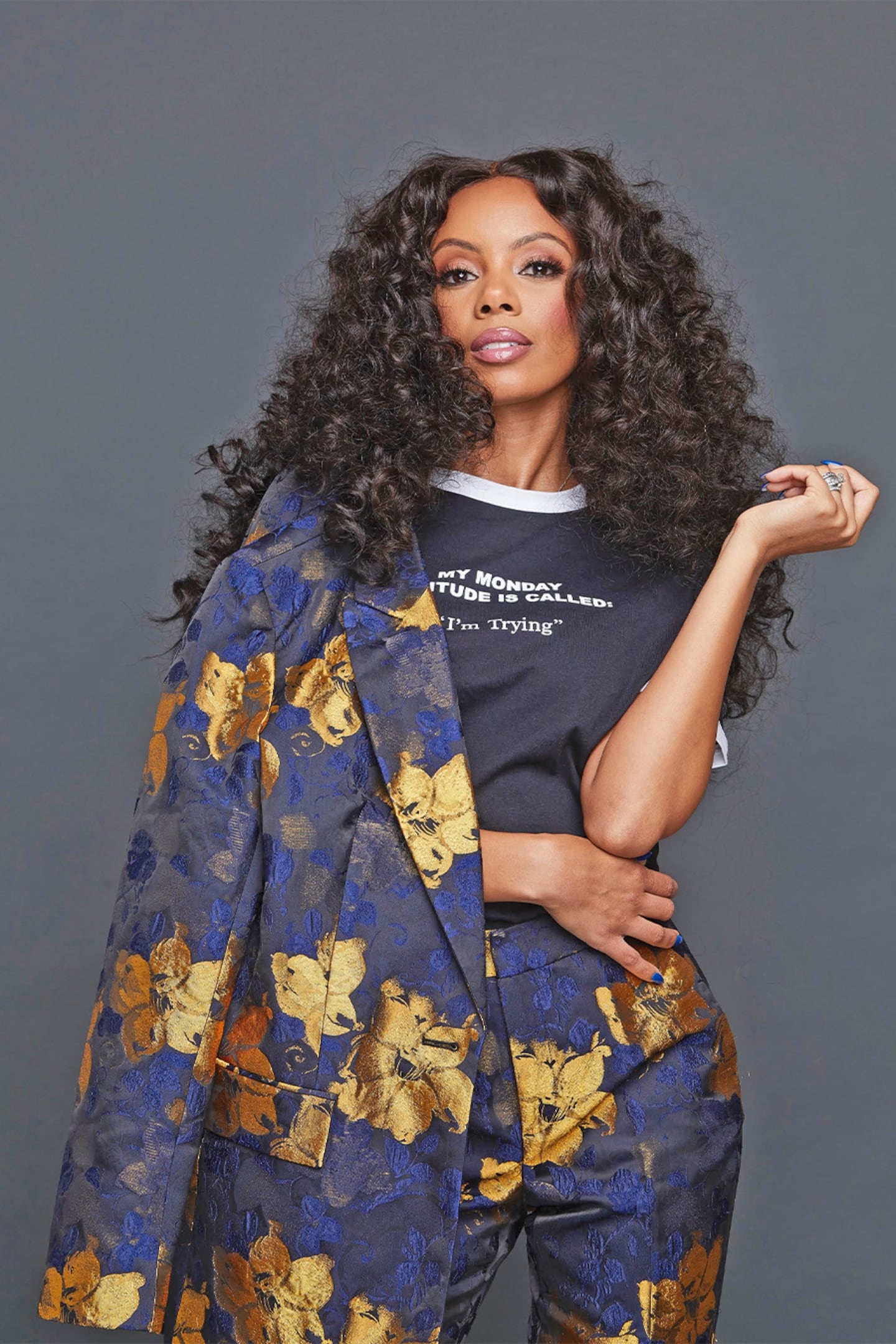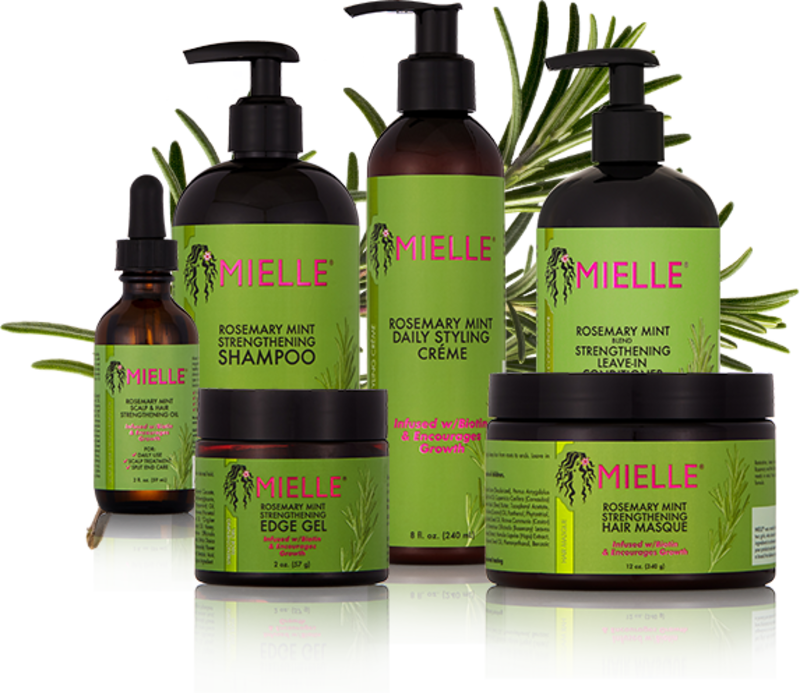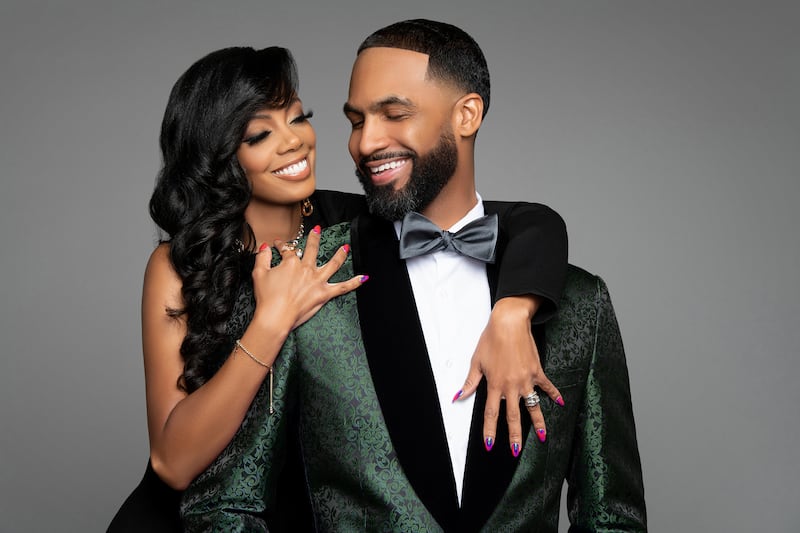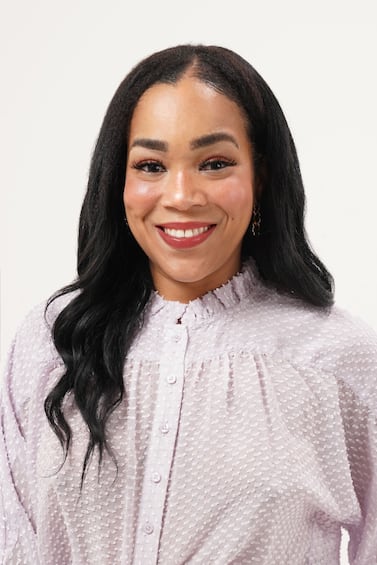
The Business of Fashion
Agenda-setting intelligence, analysis and advice for the global fashion community.

Agenda-setting intelligence, analysis and advice for the global fashion community.

On a July afternoon in Midtown Manhattan, Monique Rodriguez, founder and chief executive of the hair care and beauty brand Mielle Organics, is meeting with a handful of beauty and fashion editors at the Capital Grille restaurant to discuss, among other things, the company’s latest launch, its Mango & Tulsi Botanical Blend Collection.
A waiter is dashing dutifully between the kitchen and the group’s table delivering waters and salmon-topped salads. He stops in his tracks as he spots a nearby stack of pink shopping bags emblazoned with the Mielle logo — a silhouette of a woman’s face with long wavy tresses and a flower tucked behind her left ear.
His eyes dart back and forth between the bags and Rodriguez for a few seconds. He gasps, “That’s you! You’re her? Oh my God, I can’t believe it’s you.”
It’s a moment that’s become increasingly common for Rodriguez, who, since 2014, has turned what began as a series of hair care tutorials on Instagram — where she dreamed up hair-restoring concoctions using items from her kitchen like honey and avocado — into one of the most recognisable multicultural hair care brands. Mielle is carried in more than 100,000 stores, including Ulta, Target and Sally Beauty.
ADVERTISEMENT
Last year, Rodriguez became one of fewer than 100 Black women founders to secure at least $1 million in funding for their companies, when she landed a reported $100 million investment from Berkshire Partners — whose investments have included beauty brands Bare Escentuals and Coty as well as jewellery label Kendra Scott.
The non-controlling investment — enough to grow her team from several dozen to 100 employees and add operations and logistics support for areas like international distribution — moves Rodriguez significantly closer to her personal goal of building “a global beauty brand.” It also positions her to clear another hurdle: scaling a Black hair care label without relinquishing control to a conglomerate run by white executives.
Rodriguez won’t say whether she would consider being acquired in the future. But she is well aware of both the rarity of her position and the critical balance she must strike to get this right.
“My connection with my consumer is very strong and … they trust me,” she said. “I know how to continue to be engaged by consumers. I wouldn’t want anyone to mess that up.”
Building Mielle
Rodriguez started Mielle in 2014, when she was transitioning from having “heat-damaged” hair and was looking to restore her curls to their natural, uncompromised pattern. At the time, she thought “other women are probably going through this as well,” she said.
As it turns out, the modern natural hair care movement — an uprising among Black women swearing off hair-altering chemical treatments like perms and relaxers — had been in full swing for more than a decade. Scores of women (and men) with textured, curly and kinky hair were looking to social media and drug store aisles for new and better healthy-hair remedies.
The early-aughts iteration of the natural hair movement was becoming less about the defiant eschewing of relaxers and instead focussed largely on the discovery of natural ingredients and minimally-processed products that grow, restore and maintain the integrity of Black women’s hair — often created by Black founders.
ADVERTISEMENT
Rodriguez, a Chicago native and registered nurse, scraped up $10,000 of her own money — “which I didn’t just have laying around” — and hired a local chemist to help her craft Mielle’s first product, a blend of scalp-stimulating peppermint and amino-acid rich almond oil.

“It was very lightweight so it absorbs in the hair cuticle — a lot of oils on the market are filled with mineral oil or petroleum that actually clog the scalp and the pores,” she said of the product, which remains among the brand’s best sellers today.
It caught the eye of Sally Beauty, which became Mielle’s first retail partner. Rodriguez and her husband-turned-business-partner Melvin Rodriguez then managed to secure a $250,000 loan from “a friend of the family” to fund the company’s expansion, which eventually included a few skin care offerings — like its pomegranate and honey face mask and serum — and shelf space in major retailers like CVS, Walgreens, JCPenney and Walmart.

Unique formulations of vitamins and niche ingredients, like sea moss and tulsi, have become the brand’s calling card and have made Rodriquez a star in her own right among thousands of Black consumers — like the Capital Grille waiter, who credited Mielle’s “rice water” treatment with restoring health to his afro.
Black-Owned Beauty
Rodriguez was hardly alone in taking to Instagram and YouTube in 2014 to share hair care tips — she joined hundreds of other Black women who had “gone natural” and wanted to swap their latest hacks on social media.
During the past decade, demand for innovative and effective Black hair care products helped forge a billion-dollar market segment for natural hair — with Black consumers forecast to spend $1.9 billion on hair products annually by 2025, according to market research firm Mintel. Black-owned and fronted labels like SheaMoisture and Carol’s Daughter nabbed hefty chunks of the pie before getting snapped up by CPG and beauty conglomerates Unilever and L’Oréal in 2017 and 2014, respectively. (Unilever acquired Sundial Brands, which included SheaMoisture, Nubian Heritage, Madam C.J. Walker and nyakio.)
Those brands remain household names and major revenue drivers for their parent firms — but their acquisitions by white-run companies have come with a credibility trade-off among Black consumers, who have a sordid past with white businesses policing and even damaging their follicles. (A Google search for SheaMoisture, Carol’s Daughter and the previously Black-owned The Mane Choice will bring up dozens of results bemoaning that they are no longer Black-owned.)
ADVERTISEMENT
“Monique literally created a product in her garage,” said LeToya Luckett, a singer, actress and brand ambassador for Mielle. “A lot of times we hear these stories of ‘Oh yeah, I started selling this in the back of my truck or from my house and then boom, it [took off]’ but rarely do you hear that and then the person still has ownership of a company.”
Add to the equation a post-George Floyd racial-equity awakening across industries — and in fashion and beauty in particular — and investors, too, are becoming more willing to rewrite some components of their playbook with an eye to a more socially-conscious consumer landscape.
“Our investment in Monique and Melvin was based on their vision and their talent and what we thought they could do,” said Marni Payne, managing director and member of the consumer team at Berkshire Partners. “This was not about change.”
Going forward, Rodriguez has her eyes set on expanding to new global markets including the UK, South Africa, Nigeria and Dubai with the hopes that “five to eight years” from now, “when people say my ‘Mielle’ they understand that this is a beauty brand of choice … period,” she said.
It’s a goal that could come with some sensitivities for Rodriguez, who recognises that she must stay engaged with the mostly Black and multicultural women who helped grow her brand’s sales by 160 percent in 2020. But as Rodriguez sees it, one way to move the needle on inclusivity is to flip the definition on its head.
“I’m not pigeonholing myself to African Americans or Latinos [because] when you think about it, a lot of people have curly hair, no matter if they’re Black or white,” she said. “My goal is to serve textured hair and … when you look at the census, by 2040 the majority will have textured hair. So I can’t pigeonhole myself.”
 Opens in new window
Opens in new windowA new wave of start-ups shaking up the textured hair care space are catching the attention of major retailers and investors, grabbing more shelf space and venture capital.
With her new DTC beauty brand, Radswan, blogger-turned-entrepreneur Freddie Harrel is pitching clip-in textured hair extensions and wigs to the digitally savvy black consumer.

Sheena Butler-Young is Senior Correspondent at The Business of Fashion. She is based in New York and covers workplace, talent and issues surrounding diversity and inclusion.
According to an email viewed by The Business of Beauty, the company will be on hiatus while it establishes a sustainable path to return as a new company.
The surfing legend, a vocal opponent of chemical-based sun protection, is launching his own line of natural skincare products this week.
While light on obvious social stunts, the 2024 Met Gala still had its share of trending beauty moments this year.
TikTok has birthed beauty trends with very little staying power. Despite this reality, labels are increasingly using sweet treats like glazed donuts, jelly and gummy bears to sell their products to Gen-Z shoppers.